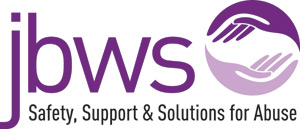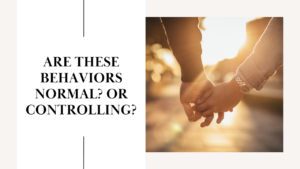Domestic violence is not always about visible bruises or broken bones. It often starts subtly, through words that cut deeper than any wound, and actions that strip away a person’s self-worth. The shame surrounding abusive relationships is a heavy burden that victims carry, often in silence. There are many conflicting emotions and hidden struggles of those trapped in the cycle of domestic abuse.
Secret Shame
For many victims, the shame is suffocating. They are told repeatedly that the abuse they endure is their fault, leading them to believe it. They question themselves, wondering, “How did I get here?” When even close family members are unaware, it’s easy to feel isolated and full of guilt. This shame and self-blame are common in victims of abuse. The emotional scars often precede physical ones, with gaslighting, belittling, and manipulation laying the foundation.
“There is such shame around someone in an unhealthy relationship. If they’ve been told repeatedly that the behavior they are seeing is a result of their actions, they believe it.” The shame becomes a hidden secret, a burden carried alone. Victims wonder if anyone would believe them, weighed down by guilt, shame, and self-blame.
Leaving the Life You Know
Leaving an abusive relationship isn’t just about walking out the door. It’s about untangling yourself from a life you’ve built, one that may involve shared finances, children, and community ties. it often takes multiple attempts before a victim can break free for good.
“If I asked anybody to get up and leave their life—the life they know, the life they’re accustomed to—would they struggle with that decision?” asks Robin Hughes, Crisis Response Team (CRT) Manager at JBWS.
It’s a question many victims of domestic violence face daily. There is no single reason why people stay in abusive relationships. It’s unique to each situation. Some victims are undocumented, others fear losing everything they know, and many worry about how they will care for their children without financial support. Barriers to leaving are different for everyone, and they’re not just about fear of the person using abuse. Victims often face immense challenges, such as navigating legal systems, securing financial independence, and finding a safe place to live. There are so many moving parts toward a sudden move for sustaining independence and it can be overwhelming to navigate those systems. Victims often don’t know about the services available to help them move forward safely.

It Started With Love
Victims of abuse often love their partners who are causing harm and that love complicates the decision to leave. In reality, “when someone stays in an unhealthy relationship, they are guilty of having hope—that if they keep trying, it will get better,” shares Robin, who has seen how the cyclical ebb and flow often keeps victims holding out for the happy moments in their relationship to return.
On average, it takes a person 7 attempts to leave an abusive relationship for good.
In addition, many victims may never have had to make a decision before. Abusive relationships are about power and control, and when victims finally have the opportunity to make a choice, it’s overwhelming. “The barriers to leaving are different for everybody,” says Robin Hughes. In abusive relationships, decisions are often made for the victim. When the chance to leave arises, it’s not just a matter of saying “I’m done.” It’s about weighing the risks and making choices that prioritize safety. Robin likens the process to a scale—only when the bad outweighs the good does a victim start to consider how to leave safely.
“It becomes a scale—when the bad outweighs the good is when a decision has to be made. How to get out safely, how do I move forward?”
Conclusion
It’s easy to wonder why someone stays in an abusive relationship, but the reality is far from simple. Understanding these barriers is crucial in offering meaningful support and helping victims find a way out. By recognizing these hidden struggles, we can begin to offer the compassion and help they so desperately need. The more we acknowledge these hidden struggles, the better equipped we are to help them find their way out.
Interesting in learning more? Watch our podcast episode on why victims won’t just leave.
Are you in an unhealthy relationship and living or working in Morris County, New Jersey? JBWS can help call our 24-Hour Helpline at 1.877.782.2873 or visit jbws.org/services. If you don’t live or work in Morris County, call the National Domestic Violence Hotline at 800.799.SAFE (7233).




